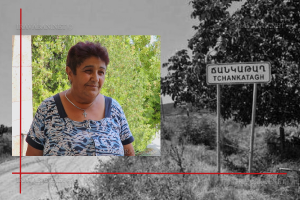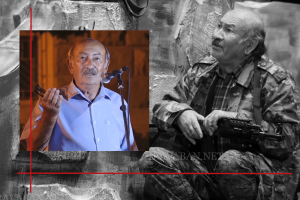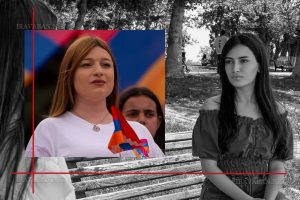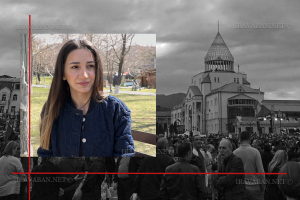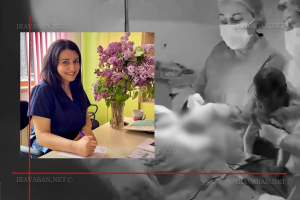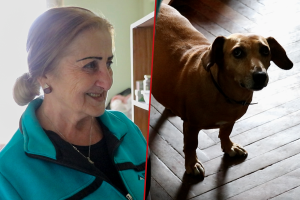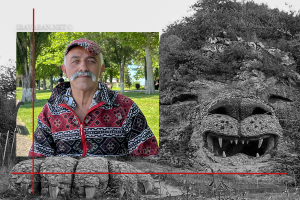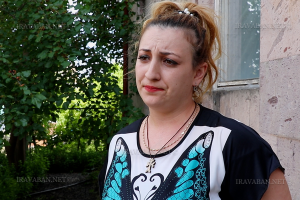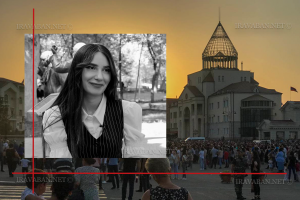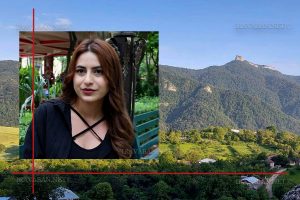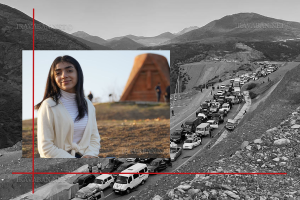65-year-old Hamest Grigoryan was evacuated from the city of Martakert. She told in the framework of “Artsakh: Armenian Genocide 2023. Stories of Survivors” documentary project of Iravaban.net, that she was at home during the attack of Azerbaijan on 19 September. “They brought cheese that day, the people didn’t have anything. Everyone was standing in a line, huddled together: there was no salt, there was no sugar, there was nothing. The people stood in a distressed state. We barely managed to buy it. I bought both the cheese and the salt, and went home, I was hanging out the laundry, when shooting began. It was five minutes past one.’
“We had prepared the small bag. We knew it would happen. Day after day we were waiting for the war to happen. We barely managed to take the small bag and our phones and went out. We entered the cellars. They were shooting so intensively that we did not take any risk, to go out. More and more people gathered, we could hardly breathe. The whole of Martakert was gathered there,” Hamest recalls, adding that the Mayor of Martakert removed half of the people and sent them to the basements of the school, where the area was larger. They stayed there for two days.
“They were constantly shelling, day and night. It was the second day and we were told that there was ceasefire. My son lived in Akanaberd. We had no news. I only learned that my daughter-in-law said, “Mom, we are going to Stepanakert.” They were evacuated from there in open cars, without anything. They stayed at the airport for four or five days. The children were hungry and thirsty. I talked to them and asked ‘Kids, do you manage to get a piece of bread at least?’ They said, “No, where could we get it,” Hamest says, and was not able to hold back his tears.
She notes that they left Martakert in the morning, on 23 September.
“It was good that we were put on a military bus. And the rest, whoever could and how they could. We couldn’t take a lot of things. Only our clothes.. It took 7-8 hours until we reached Sepanakert, because the motorcade was very harsh. We reached Stepanakert, and we were told that we would not be allowed to pass by a military vehicle. We were moved to a civilian bus, and left at four o’clock in the morning,” Hamest said.
“Artsakh: Armenian Genocide 2023. Stories of Survivors” documentary project of Iravaban.net is aimed at collecting the memories and testimonies of citizens forcibly displaced from Artsakh occupied by Azerbaijan, about the genocide of the Armenians of Artsakh committed by Azerbaijan, atrocities, the days of war, the path of deportation, etc.
Iravaban.net seeks help from citizens who will voluntarily agree to translate materials into different languages: Russian, English, French, Arabic, Persian, Turkish, Georgian, Chinese…
You can write to our e-mail address at: [email protected]
Details in the video.

